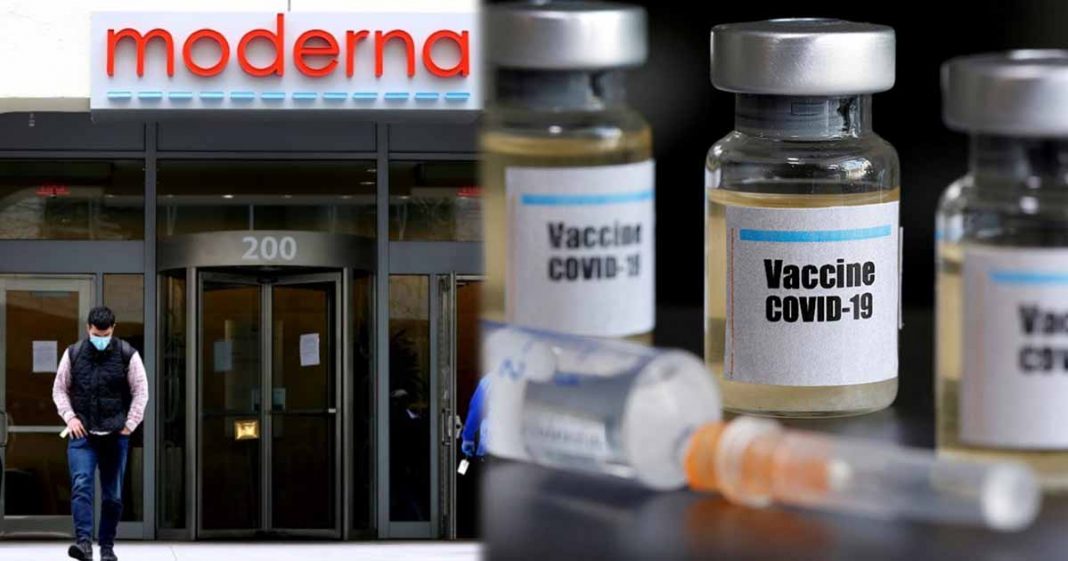The United States has doubled its investment — to nearly $1 billion — to expedite development of a potential COVID-19 vaccine by American firm Moderna, which on Monday begins the decisive final phase of clinical trials.
The government now plans to spend up to $472 million on top of the previously announced $483 million, the Moderna biotechnology company announced Sunday.
Added investment by the US to speed up vaccine efforts
Moderna said the added investment was justified by its decision, in conjunction with the government, to “significantly” expand a Phase Three clinical trial of a candidate vaccine to include 30,000 participants.
Read more: Moderna says COVID-19 vaccine in final phase of human trials
In a small, initial trial, Moderna’s experimental vaccine produced coronavirus antibodies — which should help fend off the disease — in the bodies of all 45 participants.
In the expanded trial starting Monday, half the 30,000 participants will receive a 100-microgram dose of the vaccine, while the rest will be given a placebo.
The United States has suffered more than 146,000 coronavirus deaths, leading the world in that grim category, even as the number of new cases has continued to surge.
Latest:US doubles spending on potential virus vaccine to nearly $1 billion
The government now plans to spend up to $472 million on top of the previously announced $483 million, the Moderna biotechnology company announced Sunday.— Totlani Krishan🇮🇳 (Modi Ka Parivar) (@kktotlani) July 27, 2020
It has announced massive investments in a huge effort to expedite vaccine development and get millions of Americans vaccinated by early next year.
On Wednesday, the American-German BioNTech/Pfizer pharmaceutical alliance announced that the US government had committed $1.95 billion to procure 100 million doses of its eventual vaccine.
It is the biggest deal to date under Operation Warp Speed, intended to accelerate the development, manufacturing, and distribution of coronavirus vaccines, therapeutics, and diagnostics.
Pfizer and BioNTech, which are developing the drug together, said in statements that the American people would receive the future vaccine “for free” in line with the Trump administration’s pledge.
Moderna in the lead but other vaccine alternatives trailing behind
With laboratories around the world in a furious race to develop a first effective vaccine, Moderna seems to hold the lead as it enters a final round of clinical trials — a decisive step in determining whether a vaccine is both effective and safe.
Moderna, which has been working with US health authorities, said it expects to be able to produce 500 million doses a year — and potentially up to 1 billion — starting in 2021.
Read more: Vaccine trials ‘produce immune response’, give hope against COVID-19
Chinese biotech firm Sinovac said July 6 that it, too, would begin a Phase Three clinical trial “this month,” in collaboration with Brazil’s Butantan biologic research center.
Also reporting encouraging early results have been a British project developed by Oxford University in partnership with the multinational AstraZenica laboratory, and a Chinese project, led by researchers from agencies including the Academy of Military Medical Sciences.
That effort is being financed by the CanSino biotechnology group, which is listed on the Hong Kong stock exchange.
As for BioNTech and Pfizer, the two have narrowed their vaccine candidates down to two frontrunners and are waiting for the green light to begin a mass trial involving 30,000 healthy volunteers, which may happen later this month.
Read more: US signs $2 billion deal for coronavirus vaccines with Pfizer and BioNTech
In all, nearly 200 candidate vaccines are in development, including 23 now in the clinical phase, being tested on humans.
Potential treatments available to the public
There are currently a number of treatments available for patients hospitalised with COVID-19.
Last month a Britain-based team of researchers lead by the University of Oxford announced they had successfully reduced the risk of death among seriously ill patients by administering the commonly available steroid dexamethasone.
Several countries have also issued the emergency authorisation for treatment with anti-viral remdesivir.
5. A small randomized trial of inhaled beta interferon in 100 patients, only available via press release so far, but very encouraging
results https://t.co/gUDAWrLMVi
and important caveats here, by @benjmuellerhttps://t.co/on9ervuOws pic.twitter.com/H9CGRMsScW— Eric Topol (@EricTopol) July 25, 2020
Between March and May this year, Synairgen sponsored a clinical trial at University Hospital Southampton to test SNG001 for COVID-19 patients. Those eligible for the trial only needed to have mild symptoms of COVID-19.
Other clinical trials conducted in the past for different drugs, such as remdesivir and dexamethasone, required patients to be hospitalised before they were eligible for drug treatment.
In total, 101 patients in a hospital setting were enrolled in the SNG001 trial and were given the drug daily for 14 days. Compared with a placebo, those given SNG001 had a 79% lower risk of developing severe disease.
Patients given the drug were also twice as likely to recover from their infection and were discharged earlier from hospital than those given the placebo.
Read more: Cure for COVID-19: Hydroxychloroquine proved ineffective
In the past, trial results for hydroxychloroquine did not stand up to scrutiny after they were announced and the results were subsequently retracted by the research team.
AFP with additional input by GVS News Desk














